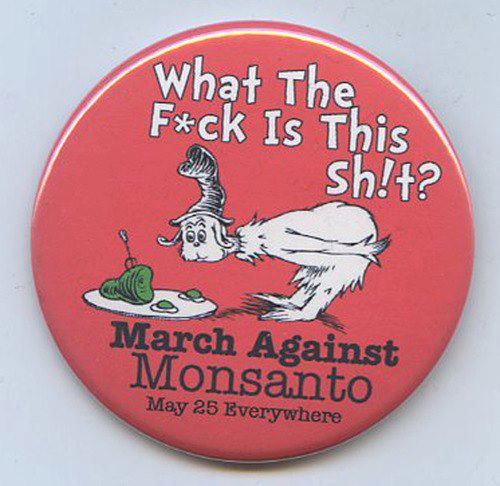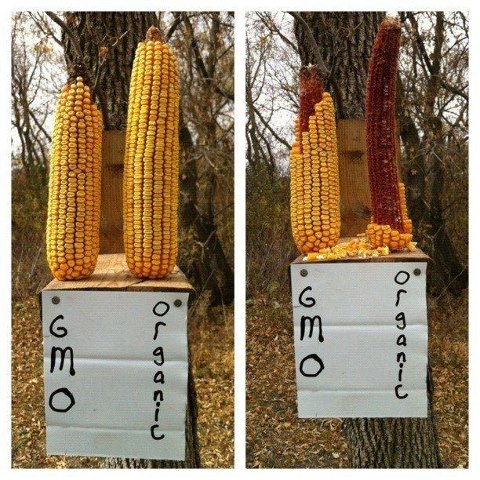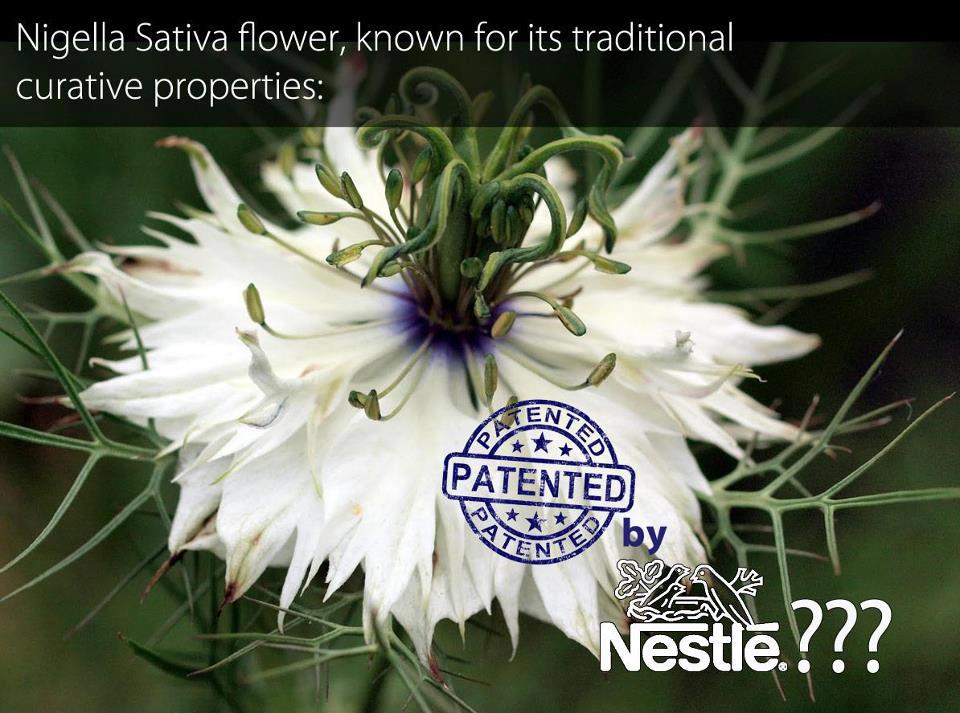Mon$anto vs. Mother Earth
-
To anyone partaking in the march, if you cannot find the details about your area let me know and I will pass it on to you.

-
Be sure and take video!
-
Reading a little more on the progress re: Monsanto vs. Mother Earth
While I am all for progress and when it comes to it, patent protection, I do draw the line at total monopolies!
There is a case coming up which might clarify matters!
*Monsanto sued small farmers to protect seed patents, report says
http://www.guardian.co.uk/environment/2013/feb/12/monsanto-sues-farmers-seed-patents
Agricultural giant has won more than $23m from its targets, but one case is being heard at Supreme Court this month
"Corporations did not create seeds and many are challenging the existing patent system that allows private companies to assert ownership over a resource that is vital to survival and that historically has been in the public domain,"
The Bowman case has come about after the 75-year-old farmer bought soybeans from a grain elevator near his farm in Indiana and used them to plant a late-season second crop. He then used some of the resulting seeds to replant such crops in subsequent years. Because he bought them from a third party which put no restrictions on their use, Bowman has argued he is legally able to plant and replant them and that Monsanto's patent on the seeds' genes does not apply.*
The shareholders in Monsanto are of course entitled to their dividends and protection of their investment but at the same time I feel farmers, the real human food cultivators / providers of the planet must be allowed to use the best available methods of growing even if this involves getting into 'gray' areas!
Ideally its farmers that should be the major shareholders in the likes of Monsanto, not stockbrokers and such. I would have much more faith in farmers doing the right thing for the economy and society in general. From my experience they are not primarily motivated by the bottom line ($$$), at least the ones that I have know over my life. Both my parents came from farmer stock and I spent much of my youth on my grandparents' farms. I imagine my grandparents would not be able to comprehend the concept of being able to patent a seed which resulted in a crop they grew not withstanding that they initially purchased the seed from a supplier!
-
This article is quite revealing in regard to the case in point.
I'm not sure where the patent law thing will end up but I can understand how a bad decision could impact future R&D in all areas.As for farmers being more trustworthy and amenable to humanities welfare and their likelihood to "do the right thing for the economy and society in general" ...
...they do seem to be pretty shrewd in knowing a good thing when they see one...They apparently like GMOs. Note that Bowman's motive was apparently the bottom line ($$$) by his own statements.
I also find the title of this thread amusing in that we apparently have the left, the right and the more pragmatic moderates flip flopping sides and playing goose goose duck or musical chairs or something.... I couldn't find a more ironic title than Monsanto (science) vs Mother Earth (????) If there is a "mother earth" she'd be telling you...adapt or die.
I have to say I really enjoy this topic...I have learned a lot about GMO.

anyway I seem to be hogging the thread so I will let you have it...unless you address me specifically.

-
Mmmmm, farmers! Yes, I agree they are a shrewd bunch when it come to looking for a bargain! I have done business with lots of them over the years and have found that they like to squeeze the last penny out of a deal. But I have always found them quite fair and honourable.
I do however feel that in general they put the welfare of the land (Mother Earth) before profits as they realise that she demands respect and slaps back when abused.
I don't know how much more farm productivity can be pushed. I somehow doubt that there is much more in it. I think we should be looking a ways of encouraging a sustainable World human population rather than pushing Mother Earth beyond what she can deliver in a sustainable way. Then again, thats another debate, one that we have broached here many times.
-
Got some time to learn?
Here is a course of lectures on Permaculture, the crux of this whole debate IMO.
Permaculture means ‘permanent culture,’ (or ‘permanent agriculture’) and …’is the conscious design and maintenance of cultivated ecosystems that have the diversity, stability, and resilience of a natural ecosystem.’ (Bill Mollison)
-
@unknownuser said:
the conscious design and maintenance of cultivated ecosystems that have the diversity, stability, and resilience of a natural ecosystem
I can't think of a better description of what Monsanto does.
...except they make improvements much faster than nature.
-
Sorry, but I can't see the saturation of soils with glyphosate fitting into that description.
-
words like "saturation" are really scarey.
Glyphosate does not bioaccumulate and breaks down rapidly in the environment.
Glyphosate has a United States Environmental Protection Agency (EPA) Toxicity Class of III (on a I to IV scale, where IV is least dangerous) for oral and inhalation exposure.
The EPA considers glyphosate to be noncarcinogenic and relatively low in toxicity.[46] The EPA considered a "worst case" dietary risk model of an individual eating a lifetime of food derived entirely from glyphosate-sprayed fields with residues at their maximum levels. This model indicated that no adverse health effects would be expected under such conditions.
If the EPA considers it low risk...you can probably drink it.
It isn't agent orange.
-
let's trust the nature!

-
Haha!
The birds know what they want!

If GMO offer no health benefits, then why do they even exist?
Money. Greed.
Having to test toxicity in the first place says to me they don't do you any good. If you don't use the toxins...there will be no toxicity!! So what if the toxicity coefficient is low....IT'S STILL A TOXIN!
Am I missing something? So what if GMO are more resilient to some diseases, with organic you lose some plants and you lose some money, big deal. It's how farming's been done for 1000s of years! Take it on the chin and move on.

-
Yes indeed, it look like the birds know whats good for them. Thanks Majid.
From what I can see, one of the main reasons the likes of Monsanto and other similar companies thrive, is simply because of the monoculture we have today. For as long as we enbrance this method of growing food there will be a requirement for pesticides and unnatural growth enhancers with their risks and ???????
Biodiversity is the best way to deliver food and at the same time maintain sustainability. Taking this down to a simple back graden level, here as some tips on how things should be done,
10 Fast Ways to Control Pests
http://www.organicgardening.com/learn-and-grow/10-fast-ways-control-pestsNow, if Monsanto could work on figuring out some way of scaling this method up in a 'natural' way I would not have a problem with them but I very much doubt they would even consider trying to do this as it goes against their real motives, profit at any arguable cost not sustainable growing. Fair enough! but I wish they would not try to hold a halo over their heads.
As regards the 'halo'! I read this on their site,
WHY DOES AGRICULTURE NEED TO BE IMPROVED
GROWING POPULATIONS,
GROWING CHALLENGES
http://www.monsanto.com/improvingagriculture/Pages/growing-populations-growing-challenges.aspxIts clap trap as far as I'm concerned. They should be honest and tag on 'GROWING PROFITS AT ANY COST' and not bother with the drivel. Monsanto looks to me be be looking forward to a 9Billion population in 2050 instead of getting involved in ways to see if its possible to have a sustainable World population!
The World is only capable of carrying a certain population of animals which include us humans. We are not really sure about this number but many informed neutral sources think we have already exceded this figure. This is the core problem!
Huge population increases over the past 120 years have and are throwing food production and other living support systems out of tilter with what Nature can deliver at a sustainable level. I think Mother Nature will in time strike back as she always has when certain species, for what ever reason, overtax and grab an unfair share of her resources.
-
prove the corn was either gmo or organic...what a ridiculous post.
-
My experience with Roundup tells me quite a different story. I was, many years ago, convinced by some farmer neighbours to spray a patch of thistle with Roundup.
It wasn't until the fifth year after spraying that anything would grow on that patch of ground. Finally in the 5th year some chickweed moved in.
This is the event that piqued my interest in what we are discussing. -
Dale, let me understand. You sprayed weed killer on a patch of ground and the weeds died and nothing grew there for five years because you didn't plant anything there. Finally some weeds grew on their own. OK
Too many details of the events are missing for me to draw any conclusions.
-
(Reuters)
Heavy use of the world’s most popular herbicide, Roundup, could be linked to a range of health problems and diseases, including Parkinson’s, infertility and cancers, according to a new study.
The peer-reviewed report, published last week in the scientific journal Entropy, said evidence indicates that residues of “glyphosate,” the chief ingredient in Roundup weed killer, which is sprayed over millions of acres of crops, has been found in food.
Those residues enhance the damaging effects of other food-borne chemical residues and toxins in the environment to disrupt normal body functions and induce disease, according to the report, authored by Stephanie Seneff, a research scientist at the Massachusetts Institute of Technology, and Anthony Samsel, a retired science consultant from Arthur D. Little, Inc. Samsel is a former private environmental government contractor as well as a member of the Union of Concerned Scientists.
“Negative impact on the body is insidious and manifests slowly over time as inflammation damages cellular systems throughout the body,” the study says.
We “have hit upon something very important that needs to be taken seriously and further investigated,” Seneff said.
Environmentalists, consumer groups and plant scientists from several countries have warned that heavy use of glyphosate is causing problems for plants, people and animals.
The EPA is conducting a standard registration review of glyphosate and has set a deadline of 2015 for determining if glyphosate use should be limited. The study is among many comments submitted to the agency.
Monsanto is the developer of both Roundup herbicide and a suite of crops that are genetically altered to withstand being sprayed with the Roundup weed killer.
These biotech crops, including corn, soybeans, canola and sugarbeets, are planted on millions of acres in the United States annually. Farmers like them because they can spray Roundup weed killer directly on the crops to kill weeds in the fields without harming the crops.
Roundup is also popularly used on lawns, gardens and golf courses.
Monsanto and other leading industry experts have said for years that glyphosate is proven safe, and has a less damaging impact on the environment than other commonly used chemicals.
Jerry Steiner, Monsanto’s executive vice president of sustainability, reiterated that in a recent interview when questioned about the study.
“We are very confident in the long track record that glyphosate has. It has been very, very extensively studied,” he said.
Of the more than two dozen top herbicides on the market, glyphosate is the most popular. In 2007, as much as 185 million pounds of glyphosate was used by U.S. farmers, double the amount used six years ago, according to Environmental Protection Agency (EPA) data.
-
Nigella sativa -- more commonly known as fennel flower -- has been used as a cure-all remedy for over a thousand years. It treats everything from vomiting to fevers to skin diseases, and has been widely available in impoverished communities across the Middle East and Asia.
But now Nestlé is claiming to own it, and filing patent claims around the world to try and take control over the natural cure of the fennel flower and turn it into a costly private drug.

-
Both articles are good.
Nestles doesn't have a prayer in patenting that.The glyphosate article indicates the study is rather inconclusive.
-
Mmmmm. its the mind set of these companies that worries me. Their wallets are fat and I imagine persuasive!
-
That must cause some cognitive dissonance when you consider some of the good things they do.
I guess it's never enough.
Advertisement







